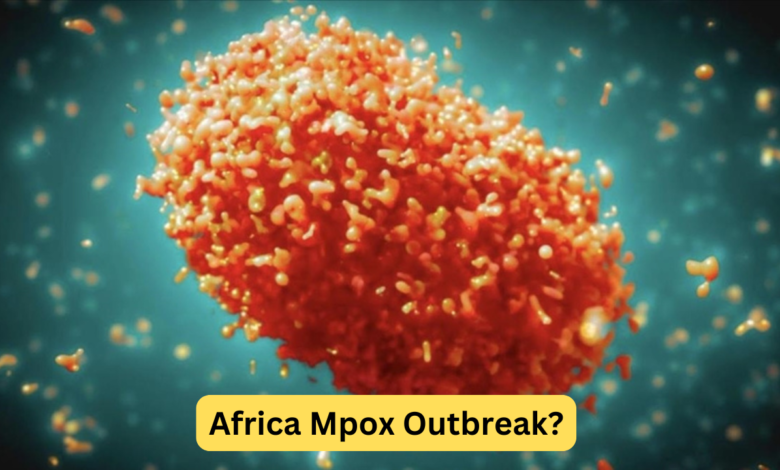
The Africa mpox outbreak has emerged as a critical health crisis, capturing global attention due to its far-reaching implications. This comprehensive article aims to provide an in-depth analysis of the outbreak, tracing its origins, current status, and the multifaceted responses involved. By delving into recent developments and expert insights, we strive to offer a complete overview of this pressing issue.
What is Mpox?
Mpox, formerly known as monkeypox, is a viral illness caused by the mpox virus. This virus belongs to the Orthopoxvirus genus, which also includes smallpox. Mpox manifests through symptoms such as fever, rash, and swollen lymph nodes. The severity of these symptoms can vary significantly, ranging from mild to severe. The disease was first identified in monkeys in 1958, but human cases were first reported in 1970.
Historical Context of Mpox in Africa
Early Cases and Spread
Mpox was first discovered in Africa, primarily affecting rural regions. The first human case was documented in the Democratic Republic of the Congo (DRC) in 1970. Since then, sporadic outbreaks have occurred throughout Central and West Africa. These cases have generally been linked to contact with infected animals or other individuals.
Recent Developments
In recent years, there has been a noticeable increase in mpox cases across Africa. Contributing factors include changes in land use, increased human-animal interaction, and deteriorating public health infrastructure in some areas. The World Health Organization (WHO) has been actively engaged in monitoring the situation and providing support to the affected regions.
Understanding the Current Outbreak
Timeline of the Recent Outbreak
The latest mpox outbreak in Africa began in early 2022 and has since spread to multiple countries. This outbreak has been characterized by a significant rise in cases and reports of community transmission in various areas. In mid-2023, the WHO declared the outbreak a Public Health Emergency of International Concern (PHEIC), underscoring its severity.
Key Affected Regions
The outbreak has primarily impacted Central and West Africa, notably in countries such as Nigeria, the DRC, and Cameroon. These regions have experienced the highest number of cases, which has placed varying levels of strain on local healthcare systems and communities.
Symptoms and Transmission
Recognizing Mpox Symptoms
Mpox symptoms typically start with fever, headache, muscle aches, and fatigue. This is followed by a distinctive rash that evolves from flat spots to raised bumps and eventually forms scabs. Swollen lymph nodes are also a common symptom. In severe cases, complications such as pneumonia and encephalitis may occur.
How Africa Mpox Outbreak Spreads
Mpox spreads through direct contact with bodily fluids of infected individuals or animals. This includes contact with sores, respiratory droplets, or contaminated materials. Human-to-human transmission can occur through close contact, particularly in crowded or unsanitary conditions.
Response and Management
WHO’s Role and Actions
The World Health Organization has been instrumental in the response to the mpox outbreak. The WHO has provided technical support, facilitated the distribution of vaccines and treatments, and coordinated international efforts to contain the virus. Key measures from WHO include surveillance, case management, and infection control.
National Responses and Strategies
Countries affected by the outbreak have implemented various strategies to manage the situation. These strategies include strengthening surveillance systems, improving healthcare infrastructure, and conducting public awareness campaigns. Vaccination programs have also been launched in some areas to curb the spread of the disease.
Vaccination and Treatment
Available Vaccines
The smallpox vaccine has been used effectively in outbreak responses due to its cross-protection against mpox. This vaccine is administered to individuals at high risk of infection. Efforts are ongoing to develop and distribute specific vaccines targeting mpox.
Treatment Options
Currently, there is no specific antiviral treatment for mpox. However, supportive care can help manage symptoms and prevent complications. Antiviral medications used for smallpox may be considered in severe cases. Early diagnosis and prompt medical care are crucial for effective management.
Impact on Public Health and Communities
Health System Strain
The mpox outbreak has exerted significant pressure on health systems in the affected regions. Hospitals and clinics are facing increased patient loads and resource shortages. The outbreak has highlighted existing gaps in healthcare infrastructure and the urgent need for improvements.
Socioeconomic Effects
The outbreak has also had notable socioeconomic impacts, particularly in rural areas with limited healthcare access. Economic disruptions, including effects on agriculture and trade, have adversely affected local communities. Public health measures such as lockdowns and travel restrictions have further intensified these challenges.
Global Implications
International Concerns
The mpox outbreak in Africa has raised concerns about potential global spread. While the risk of widespread international transmission remains low, global health authorities are closely monitoring the situation. International collaboration and support are vital for addressing the outbreak and preventing future occurrences.
Lessons Learned
The outbreak has provided valuable insights into public health preparedness and response. Key lessons include the importance of early detection, rapid response, and international cooperation. Strengthening global health systems and enhancing surveillance will be essential for managing similar outbreaks in the future.
Resources and Further Reading
For more detailed information on mpox and the ongoing response, consider visiting the following resources:
Conclusion
The Africa mpox outbreak represents a significant public health challenge with broad implications. Understanding its origins, symptoms, and management strategies is crucial for addressing the current situation and preventing future outbreaks. By bolstering public health responses and fostering international cooperation, we can work towards mitigating the impact of mpox and safeguarding global health.





One Comment